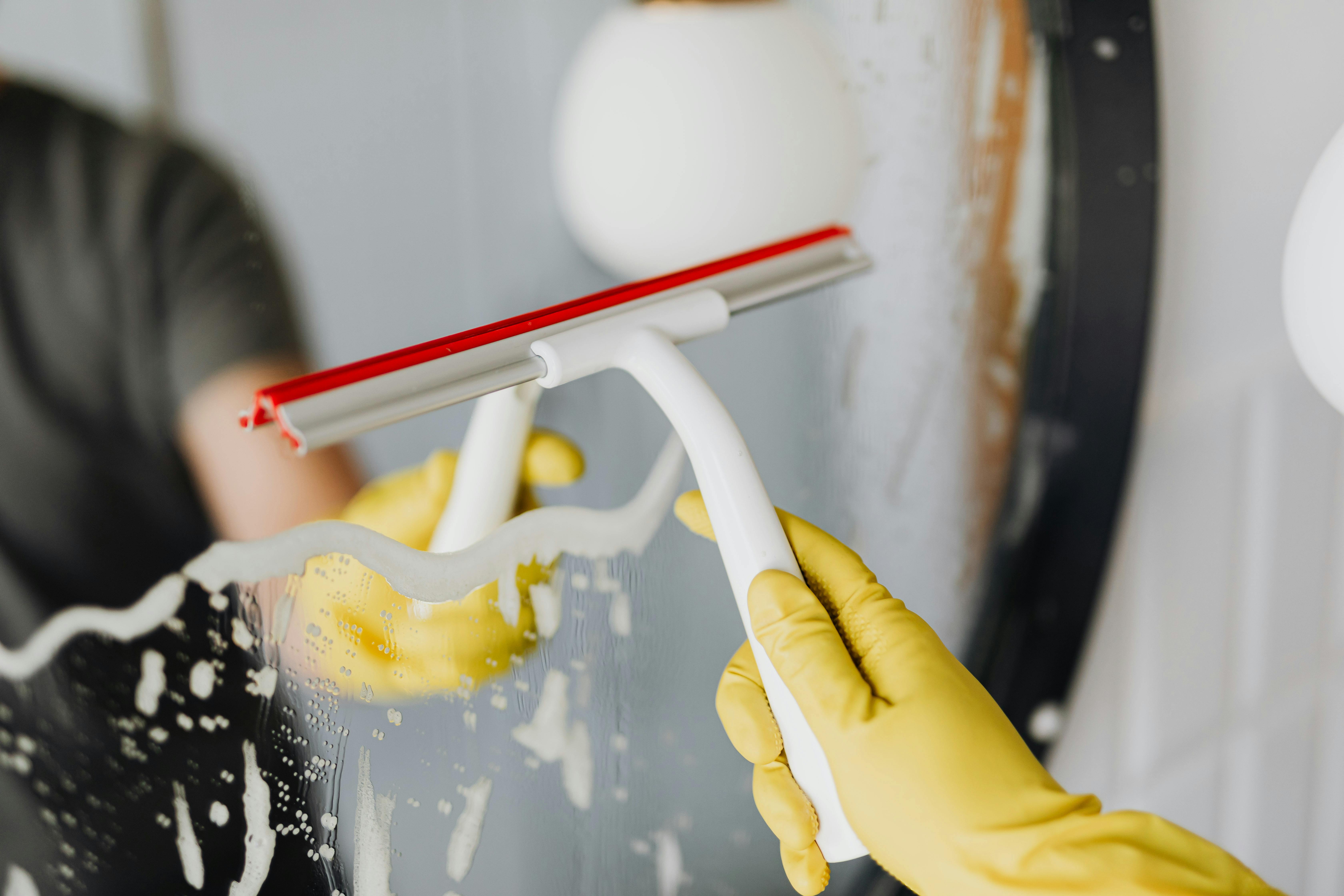Using distilled water for a humidifier is an important consideration that can have a significant impact on the performance and efficiency of your device. Humidifiers are designed to increase the moisture content in the air in order to provide relief from dryness and allergies. If you don’t use the right type of water, it can lead to a buildup of minerals, mold, bacteria, and other contaminants that are harmful for your health. In this article, we will discuss why distilled water is the best choice when it comes to using water in your humidifier. We will also cover how to properly care for your humidifier and when it’s time to change the water.Distilled water is water that has been boiled and evaporated to remove contaminants such as minerals, salts, and other impurities. It is then condensed back into liquid form. Distilled water is usually used for drinking, cooking, and medical purposes due to its purity.
What is a Humidifier?
A humidifier is an appliance that adds moisture to the air in a room or an area. It is commonly used to alleviate dry air conditions, such as those caused by central heating systems. Many people also use them to help relieve cold and flu symptoms, reduce static electricity, and to make the air more comfortable for breathing. Humidifiers come in a variety of types and sizes, from tabletop models to whole-house systems. They usually use either steam or ultrasonic technology to generate mist that is released into the air. They are relatively easy to operate and maintain, making them a popular choice for many households.
Humidifiers can be used in any room of the home, but it’s important to consider the size and type needed for each space. Tabletop humidifiers are best suited for small rooms or spaces; while larger units may be needed for larger areas such as living rooms or basements. Whole-house humidifiers are usually connected directly to your HVAC system for increased efficiency and convenience. It’s important to carefully follow manufacturer instructions when installing your humidifier to ensure proper operation and prevent any damage
The Benefits of Using Distilled Water in a Humidifier
Using distilled water in a humidifier has many benefits that can improve the air quality in any room. Distilled water is free of minerals, chemicals and bacteria, which can be found in regular tap water. This makes it ideal for use in humidifiers as it will not leave behind any residue that could clog the unit, and it will not contribute to unpleasant odors. In addition, using distilled water also eliminates the need for regular filter changes, saving time and money.
Another benefit of using distilled water is that it helps extend the life of the humidifier. The minerals and other particles found in tap water can corrode and damage parts of the unit over time. Using distilled water can help prevent this damage by keeping these particles out of the machine. Additionally, since distilled water is free from bacteria and other contaminants, it does not provide a breeding ground for microorganisms that could potentially cause health problems.
Finally, using distilled water in a humidifier is also beneficial because it eliminates hard deposits from forming on surfaces. Regular tap water contains calcium and other minerals that can build up
Risks of Using Distilled Water in a Humidifier
Using distilled water in a humidifier can have some risks associated with it. One of the main risks is the potential for bacteria to grow in the water. This is because distilled water does not contain any minerals that would prevent bacterial growth. The stagnant water can also provide a breeding ground for bacteria, which can then be spread throughout the air in your home. In addition, if the humidifier is not regularly cleaned and maintained, there is an increased risk for mold and fungus growth as well.
Another risk associated with using distilled water in a humidifier is mineral deposits that may accumulate over time. Since there are no minerals to prevent this from happening, it is possible that mineral deposits will form on the inside of your humidifier, reducing its efficiency and potentially clogging it up over time. This can be especially problematic if you are using an ultrasonic humidifier, as they are more prone to mineral buildup than other types.
Finally, using distilled water in a humidifier can also lead to corrosion of certain parts of the machine due to chemical imbalances caused by the lack
Alternatives to Distilled Water for a Humidifier
Using distilled water in a humidifier is often the best option, as it helps to ensure that no mineral deposits are left behind and that the humidifier will function properly. However, there are times when using an alternative to distilled water may be necessary. In these cases, it is important to understand what types of water are best suited for use in a humidifier.
One of the most common alternatives to distilled water is tap water. Tap water is generally safe for use in a humidifier and will not leave behind any mineral deposits or other residue. However, if the tap water in your area has high levels of minerals or other impurities, it may be best to avoid using this type of water in your humidifier.
Distilled white vinegar can also be used as an alternative to distilled water in a humidifier. The vinegar helps to reduce mineral buildup and can help keep the unit running more efficiently. It should be noted that this type of vinegar should never be used directly on any surfaces or with any filters; rather, it should only be added directly into

How to Use Distilled Water in a Humidifier
Using distilled water in your humidifier can help improve the efficiency and extend the life of the device. Distilled water contains fewer minerals than regular tap water, which makes it better for humidifiers because it reduces mineral buildup. It also helps to reduce the amount of bacteria and other contaminants that can be released into the air when using regular tap water. Here’s how you can use distilled water in a humidifier:
1. Fill up a container with distilled water. Make sure you use a container that is specifically designed for holding distilled water, as containers that are not designed for this purpose may contain contaminants or chemicals that could damage your humidifier.
2. Pour the distilled water into your humidifier’s tank. Make sure that you do not overfill it, as this may cause the device to malfunction.
3. Install any filters or cartridges that your humidifier requires and place them in their designated slots.
4. Close up your humidifier and turn it on. Depending on the type of humidifier you
Cleaning of a Humidifier with Distilled Water
It is important to clean the humidifier regularly with distilled water to ensure it is functioning correctly. Before cleaning, it is best to unplug the unit and remove all of the parts and accessories. Start by wiping down the exterior of the unit with a damp cloth or sponge. To get rid of any built-up dirt and dust, use a small brush attachment on your vacuum cleaner. The interior should be cleaned with mild soap and warm water using a clean cloth or sponge. Rinse thoroughly and allow all parts to air dry before reassembly.
Maintenance of a Humidifier with Distilled Water
To maintain a humidifier with distilled water, make sure to replace the filter regularly as recommended by the manufacturer. This will help keep your unit running efficiently and prevent bacteria from building up in the tank or in the air that is being circulated throughout your home. Additionally, keep an eye on the humidity levels in your home as too much humidity can be just as detrimental as too little. Finally, make sure to check for any signs of leakage or other damage which may
Troubleshooting with Distilled Water in a Humidifier
The use of distilled water in a humidifier is an effective way to reduce the accumulation of mineral deposits and bacteria. This is especially important for people who suffer from allergies or asthma. However, when using distilled water in a humidifier, there are some troubleshooting steps that can help resolve any issues that may arise.
The first step to troubleshooting with distilled water in a humidifier is to check the filter. The filter should be replaced every three months or as needed. Make sure the filter is clean and free of any debris or buildup. If the filter appears to be clogged, it should be replaced immediately. It is also important to ensure that the humidifier’s reservoir is adequately filled with distilled water before turning it on.
It is also important to regularly inspect the humidifier for signs of wear and tear such as cracks or breaks in the housing or tubing. If any damage has been detected, it should be repaired immediately to ensure proper functioning of the unit. Additionally, when using distilled water, it is important to check for mineral deposits inside the reservoir as these

Conclusion
It is important to use distilled water in a humidifier for many reasons. It helps to prevent the buildup of mineral deposits in the tank and on the heating element. It also reduces the likelihood of bacteria and mold growth, which can be dangerous to your health. Distilled water is also much less likely to cause any damage or corrosion to your humidifier, making it the best choice.
Overall, using distilled water for a humidifier is highly recommended. It will help keep your home safe and free from harmful contaminants, while also ensuring that your humidifier functions properly for years to come.

